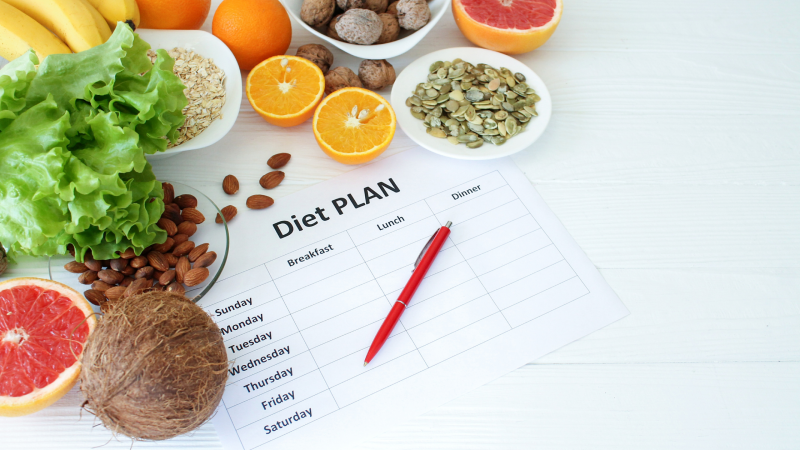Losing 5 kilograms (11 pounds) in just 7 days is an ambitious and potentially unhealthy goal. Rapid weight loss can often involve extreme measures that may not be sustainable or safe in the long run. It's important to prioritize your health and well-being when aiming for weight loss. Here are some general guidelines to help you make healthier choices
1. Consult a Professional
Before starting any intense weight loss plan, consult with a healthcare professional, such as a doctor or a registered dietitian. They can provide personalized advice based on your health status.
2. Caloric Deficit
Weight loss typically involves creating a caloric deficit, where you consume fewer calories than your body burns. However, extreme caloric restriction is not recommended. Aim for a moderate deficit, usually around 500 calories per day, to lose weight gradually and safely.
3. Balanced Diet
Focus on a balanced diet that includes a variety of nutrient-dense foods. Include plenty of fruits, vegetables, lean proteins, and whole grains. Avoid extreme diets that eliminate entire food groups.
4. Portion Control
Pay attention to portion sizes to avoid overeating. Eating smaller, more frequent meals throughout the day can help regulate blood sugar levels and prevent excessive hunger.
5. Hydration
Drink plenty of water throughout the day. Sometimes, the body can retain water, leading to a temporary increase in weight. Staying hydrated can help reduce water retention.
6. Physical Activity
Include regular physical activity in your routine. Aim for a combination of cardiovascular exercise and strength training. While exercise is important for overall health, extreme workout regimens may not be sustainable.
7. Limit Processed Foods
Minimize the intake of processed and high-sugar foods. These can contribute to excess calorie consumption and hinder weight loss efforts.
8. Sleep Well
Ensure you get adequate and quality sleep. Lack of sleep can affect hormones that regulate hunger and metabolism, potentially hindering weight loss.
9. Avoid Fad Diets
Steer clear of extreme or fad diets that promise rapid weight loss. These diets often lack essential nutrients and can lead to muscle loss and other health issues.
10. Monitor Progress
Keep track of your progress, but focus on long-term goals. Sustainable weight loss is a gradual process that involves making lifestyle changes for the better.
Remember, losing weight too quickly can have negative effects on your metabolism, muscle mass, and overall health. It's crucial to approach weight loss with a balanced and sustainable mindset. If you have specific weight loss goals, consider working with a healthcare professional or a registered dietitian to create a personalized plan that aligns with your health needs.






CONVERSATION